One option that can help you get one step closer to resolving your debt is by considering consolidating your debt. Debt consolidation refers to the act of taking out a new loan to pay off other liabilities and consumer debts, generally unsecured ones. The process involves combining multiple debts into a single, larger piece of debt, usually with more favorable payoff terms. These favorable payoff terms can include a lower interest rate, lower monthly payments, or both.
Consumers can use debt consolidation as a tool to deal with student loan debt, credit card debt, and other liabilities. Debt consolidation is a financial strategy which is especially effective on high-interest debt such as credit cards. It should reduce your monthly payment by lowering the interest rate on your bills, making it easier to pay off the debt. This debt relief option untangles the mess consumers face every month trying to keep up with multiple bills from multiple card companies and multiple deadlines. Instead, there is one payment to one source, once a month.
Debt consolidation is also referred to as “bill consolidation” or “credit consolidation.” By any name, consolidating debt effectively should get you out of debt faster and eventually improve your credit score. With debt consolidation, you can save time and money!
A Closer Look
For some people, handling their debt may be easy, they may be able to organize their budget better and get motivated to pay down their debt by setting specific guidelines and goals, but for those consumers that may have a troubled time managing their debt, debt consolidation may be of great help. This is where a debt consolidation loan or debt management program can step in.
Things to keep in mind:
- Debt consolidation is the act of taking out a new loan to pay off other liabilities and consumer debts, generally unsecured ones.
- Debt consolidation loans don’t erase the original debt but transfer a consumer’s loans to a different lender or type of loan.
- There are two different kinds of debt consolidation loans: secured and unsecured.
- Consumers can apply for debt consolidation loans, lower-interest credit cards, HELOCs (home equity lines of credit), and special programs for student loans.
How Does Debt Consolidation Work?
When a consumer is overwhelmed with different kinds of debt, they can apply for a loan to consolidate those debts into a single liability and pay them off. Payments are then made to the new debt until it is paid off in full. This is the definition of the term ‘consolidate’ which means to combine a number of financial accounts or funds into a single overall account or set of accounts. For consumers, this is good news because this simplifies the payment structure for them.
For creditors, they are willing to except consumers who are interested in debt consolidation for several reasons. Debt consolidation maximizes the likelihood of collecting from a debtor. Debt consolidation loans are usually offered by financial institutions such as banks and credit unions, but there are other specialized debt consolidation service companies that provide these services to the general public. An important point to note is that debt consolidation loans don’t erase the original debt. Instead, they simply transfer a consumer’s loans to a different lender or type of loan. For actual debt relief or for those who don’t qualify for loans, it may be best to look into a debt settlement rather than, or in conjunction with, a debt consolidation loan.
Example of Debt Consolidation
Say an individual with three credit cards and a total of $20,000 owing at a 22.99% annual rate compounded monthly needs to pay $1,047.37 a month for 24 months to bring their balances down to zero. This works out to $5,136.88 paid in interest alone over time. If the same individual consolidated those credit cards into a lower-interest loan at an 11% annual rate compounded monthly, they would need to pay $932.16 a month for 24 months to bring the balance to zero. This works out to $2,371.84 being paid in interest. This results in a monthly savings of $115.21, with $2,765.04 saved over the life of the loan.
Types of Debt Consolidation
There are two broad types of debt consolidation loans: secured and unsecured loans. Secured loans are backed by one of the borrower’s assets such as a house or a car. The asset, in turn, works as collateral for the loan. Unsecured loans, on the other hand, are not backed by assets and can be more difficult to obtain. They also tend to have higher interest rates and lower qualifying amounts. With either type of loan, interest rates are still typically lower than the rates charged on credit cards. And in most cases, the rates are fixed, so they do not vary over the repayment period. There are several ways you can lump your debts together by consolidating them into a single payment.
Below are a few of the most common:
Debt Consolidation Loans
Many creditors, traditional banks and peer-to-peer lenders, offer debt consolidation loans as part of a payment plan to borrowers who have difficulty managing the number or size of their outstanding debts. These are designed specifically for consumers who want to pay down multiple, high-interest debt.
Credit Cards
Another method is to consolidate all your credit card payments into a new credit card. This new card can be a good idea if it charges little or no interest for a set period of time. You may also use an existing credit card’s balance transfer feature—especially if it offers a special promotion on the transaction.
HELOCs
Home equity loans or home equity lines of credit (HELOC) are another form of consolidation. Usually, the interest for this type of loan is deductible for taxpayers who itemize their deductions.
Student Loan Programs
There also are several consolidation options available from the federal government for people with student loans. The federal government offers direct consolidation loans through the Federal Direct Loan Program. The new interest rate is the weighted average of the previous loans. Private loans don’t qualify for this program, however.
Should I Consolidate my Debt?
If you are tired of seeing your credit card balance rise every month and the balance has reached levels that are starting to overwhelm you, and you are weary of the anxiety this is bringing into your life every month and you just need a plan you can follow, then yes, credit card debt consolidation is something you should strongly consider. In other words, if you’re ready to turn your financial life around, debt consolidation can help do it. Debt consolidation is a plan. It simplifies bill paying and it gives the consumer a reachable goal to meet every month and helps them retake control of their financial future.
To learn more, click here.





